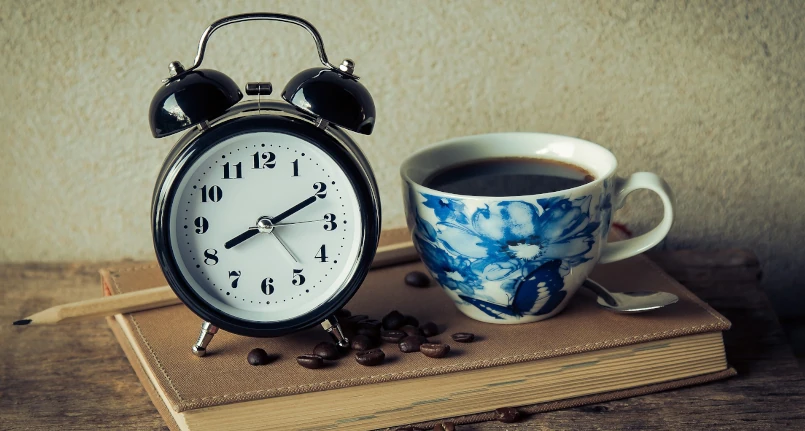Introduction
For many people, the day truly begins with a cup of coffee. But to maximize its energizing effects, the best time to drink coffee may not be when you wake up. In fact, there may be advantages to drinking it mid-morning or even later, if the goal is to increase concentration and responsiveness.
Benefits of coffee
Among the many nutritional components of coffee , the best known is obviously caffeine , capable of:
- perform a stimulating action on gastric and biliary secretion , and therefore facilitate digestion ;
- stimulate cardiac and nervous function, with a consequent energetic effect , useful for counteracting, for example, post-prandial drowsiness ;
- promote weight loss . Caffeine has a lipolytic effect, ie it stimulates the use of fat for energy purposes and thermogenesis , increasing the amount of calories burned by the “man machine”;
- decrease the sense of hunger .
Best times of the day to drink coffee
In addition to waking up, to start the day with the right energy, there are other suitable moments to take in caffeine, therefore drinking a good coffee. Mid-morning, for example: Coffee contains caffeine and the stimulant can raise cortisol levels. Cortisol is the main stress hormone , involved in the proper functioning of our metabolism , the action of the immune system and the blood sugar level , among other functions. Cortisol levels naturally peak about 30 to 45 minutes after you wake up as your metabolism kicks into gear. This implies a greater consumption of energy. To avoid a strong cortisol spike, it is recommendeddrink your first cup of coffee about an hour or two after waking up , when cortisol levels drop.
Some people prefer to drink a coffee before training, to have extra energy available . The effects of coffee are felt quite soon after drinking it. Therefore, drinking a cup of coffee 30 minutes before exercise can help with endurance , coordination and decrease pain perception .
Coffee can also be a great help after a sleepless night . In an October 2016 sleep quality study , researchers assessed how much caffeine people with sleep disorders needed to feel like they had rested through the night. What emerged was that they needed:
- 200 milligrams (or about 2 cups of coffee) as soon as you wake up
- 200 milligrams more 4 hours later
Did you know that…
Drinking coffee is closely related to health benefits, such as better concentration, less inflammation, longevity and better heart health . To maximize these potential benefits, nutrition experts recommend grains that are less roasted and richer in polyphenols , and therefore with a potential antioxidant effect . Light and medium roast coffee has more polyphenols.
Organic coffee is a great product. In the event that coffee causes agitation, states of nervousness or insomnia , it is better to opt for decaffeinated varieties, so as to partially avoid caffeine. It is useful to keep in mind that decaffeinated coffee still has a percentage of caffeine, about 20 milligrams compared to thresholds ranging from 50 to 100 milligrams of traditional coffee.
Coffee – just the right amount
Experts recommend no more than 300 milligrams of caffeine per day, or about 4 cups. An espresso at the bar provides on average 60 mg of caffeine and a coffee prepared at home with the mocha 85. For people who have an intolerance or sensitivity to caffeine it may be useful to reduce or eliminate caffeine completely from their diet, and consume it at maximum 2 cups of coffee and replace with green tea or matcha , with a high energizing power. Exceeding the daily doses of coffee can lead to unexplained anxiety , insomnia, high cortisol, tremors , nervousness, increased blood pressure .
During pregnancy it is a good rule to limit the consumption of coffee as much as high doses of caffeine are dangerous for the health of the fetus .
It should be remembered that coffee, or rather caffeine, also has further contraindications :
- stimulatory effect on gastric secretion, which can cause damage to the digestive system – due to the high acidity of the juices poured into the stomach : do not drink coffee if you suffer from ulcers , gastritis or gastroesophageal reflux ;
- do not drink coffee in case of insomnia, hot flashes and hypertension: tachycardia , blood pressure changes and tremors could appear even in healthy people;
- inhibitory effect on the absorption of calcium and iron.
Finally, coffee can sometimes cause nausea .
When to avoid drinking coffee
Drinking coffee later in the day can also affect sleep quality . Caffeine has the ability to improve cognitive performance, but one of the side effects is sleep deprivation . Drinking coffee maximum at the end of lunch, but not in the afternoon, is better in case of hypersensitivity to caffeine.




